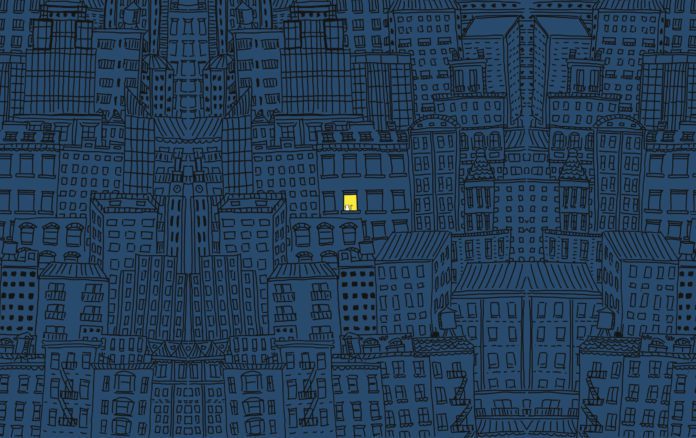It’s a terrible feeling to jolt awake in the middle of the night, tossing and turning for hours in the dark until the sun starts to come out. You’re so weary that you drag yourself out of bed, trying to figure out how you will make it through the day. Sleep disorders such as insomnia can have major health repercussions, and one of the most serious is alcohol or drug abuse.
The Struggle of Insomnia
If you don’t get the recommended minimum seven hours of sleep each night, you are not alone: About one-third of American adults have a sleep disorder, according to the Centers for Disease Control and Prevention. One of the most prevalent sleep disorders is insomnia. This is characterized by an inability to fall asleep at night, or to stay asleep, which can result in several hours of wakefulness.
Lost sleep due to insomnia, as well as other types of sleep disorders, can take a severe toll physically, emotionally, and mentally. As the hours of wakefulness pile up over time with chronic insomnia, you will find yourself unable to complete tasks associated with daily life because your brain will feel fuzzy and unable to focus or make clear decisions. You can experience intense sleepiness during the day, which will wear you down in both the short and long term. You are at higher risk of having an accident, hurting yourself or someone else. Sleep loss can also lead to mood swings—not just waking up cranky (although that is certainly a part of it), but developing anxiety or depressive disorders. Finally, the CDC notes that a chronic lack of sleep can be linked to a higher risk of type 2 diabetes, heart disease, and obesity.
On top of all that, there is the dangerous relationship between insomnia and drug abuse.
The Connection Between Insomnia and Drug Abuse
Unfortunately, addiction and insomnia are often intertwined in a complex connection. People who have a substance disorder are likely to experience insomnia as a result of their alcohol or drug abuse. In fact, a sleep disorder caused by substance abuse or addiction is included in the Diagnostic and Statistical Manual of Mental Disorders, Fifth Edition. The federal government’s Substance Abuse and Mental Health Services Administration estimates that anywhere between 25% to 72% of people who are being treated for alcohol abuse also have a sleep problem such as insomnia.
Here is where things get complicated. Because insomnia can cause such debilitating symptoms, including a feeling of depression, people who abuse substances may turn to drugs or alcohol as a way of coping or self-medicating or to try to help themselves fall asleep and get some desperately needed rest. However, this behavior continues to reinforce the drug abuse patterns and can easily lead to addiction if substances are used every night.
In addition, withdrawal presents its own risks of insomnia. Disrupted sleep is often a symptom of withdrawal from drugs, including cocaine and marijuana. This lack of sleep can make it tougher to get through the detox phase as well as the early stages of recovery, because you are not as sharp mentally, emotionally, or physically as you should be to work through this process.
So the goal should be to improve your sleep habits in order to get that seven hours of sleep each night—without relying on substances as your coping technique. Fortunately, there are things you can try immediately to work towards getting a good night’s sleep.
Coping with Insomnia While Dealing with Drug Abuse
In order to improve your sleep patterns, you need to develop what is called good sleep hygiene. Taking the right precautionary measures can help you cope with insomnia so it doesn’t ruin your life. In addition to the tips below, you should also visit a doctor to talk about your sleep disorder to make sure it isn’t caused by a medical condition that needs to be treated.
Good sleep hygiene includes:
- Keeping your bedroom dark with blackout curtains or heavy drapes to ensure light doesn’t disturb your sleep.
- Set a comfortable temperature that isn’t too hot or too cold—between 60 and 67 degrees, according to the National Sleep Foundation—and make sure your bedding doesn’t make you feel overheated.
- Don’t use any electronic devices (TV, cell phone, computer, tablet) before going to sleep, and don’t keep them in your room. The blue light they emit can prevent you from falling asleep.
- Avoid eating a large meal in the hours before bedtime. The subsequent digestive process can prevent sleep, or you could be awakened by a bout of acid reflux or heartburn.
- Don’t drink coffee or alcohol before going to sleep.
- Exercise during the day, as physical activity can help you wind down easier at night.
- Create a relaxing bedtime ritual. Try taking a warm bath or meditating before going to bed, read a book, or use a calming lavender essential oil to help create a peaceful ambiance.
- Set reasonable times to go to sleep and wake up, and be consistent with them as much as possible. This kind of regularity can help set your circadian rhythms, which govern your sleep.
- If your insomnia is caused by external factors or related conditions, CBD may help by treating the causes of sleeplessness.
A final note: there are plenty of over-the-counter sleep supplements and medications on the market. But these should be approached with caution, as they are powerful sedatives and they can suppress your natural sleep cycle. Talk with a doctor to understand the risks, and don’t rely on them as a long-term solution.
Insomnia is rough enough on its own without factoring in co-occurring drug abuse. To properly treat both issues, you need experienced and professional help from a highly qualified treatment facility. Clear Sky Recovery offers comprehensive care for addiction and its related issues, including insomnia. Don’t suffer from another sleepless night, see someone who gave offer professional advice. Sweet dreams!
